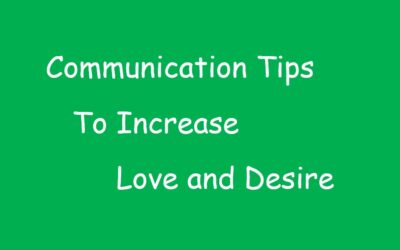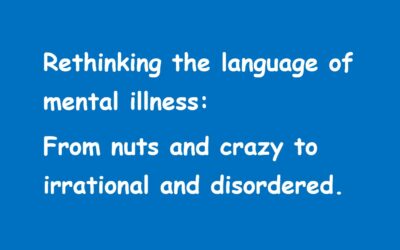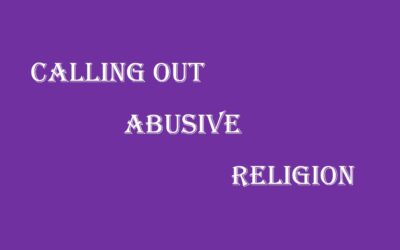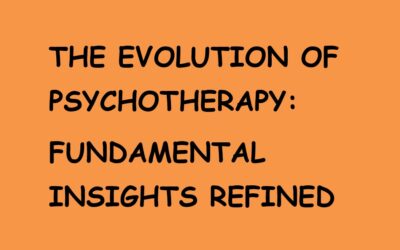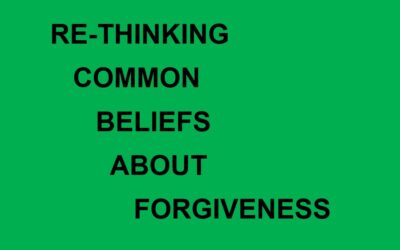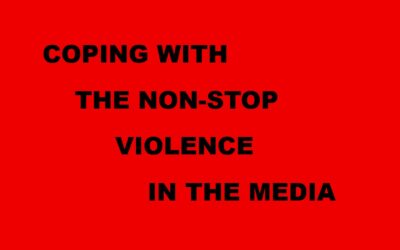Call or text (315) 380-1005 Rev. Heath Can Help!
For your convenience and popularity, all counseling is provided via Tele-therapy.
Hi! I am Michael Heath and this is the Pine Ridge Pastoral Counseling Web Page. Pine Ridge is a place for folks who are looking for the best mental health care but who are turned off by large clinics or impersonal facilities.
Since 1994, Pine Ridge has offered a distinctive and more personal alternative for mental health needs while providing a comprehensive range of psychological services to help individuals, couples and families deal with a wide range of emotional, relational, crisis related, life phase and spiritual problems.
Since I am both a state Licensed Psychotherapist and a nationally Certified Pastoral Counselor, I offer a comprehensive therapeutic approach which can relate to both the psychological and spiritual dimensions of life’s difficulties .
This web site is a great place to learn about my areas of expertise and to find answers to questions you may have concerning psychotherapy, marriage counseling, couples counseling, and other counseling related issues. If you can’t find what you’re looking for, please contact me and I’ll be glad to help.
Helping the people of Central New York since 1978 with:
- ANXIETY / DEPRESSION / OCD
- PTSD / SEXUAL ABUSE
- STRESS MANAGEMENT
- OBSESSIONS / COMPULSIONS
- LOSS AND GRIEVING
- SPIRITUAL CONFUSION / LOSS OF FAITH
- SHAME / GUILT / LOW SELF-ESTEEM
- POOR COUPLE COMMUNICATION
- ARGUMENTS / CONFLICT
- SEX / NO SEX
- PORNOGRAPHY / SEX ADDICTION
- BETRAYAL / INFIDELITY
- SEPARATION / DIVORCE
- MONEY / KIDS / INLAWS
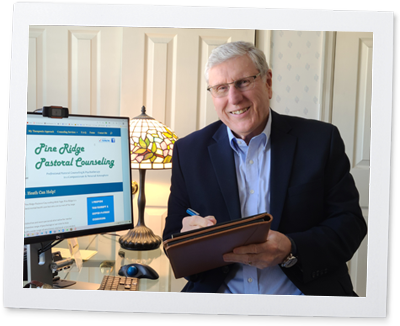
Latest Blog Articles
By Rev. Michael Heath
INTIMATE CONVERSATIONS
Feeling loved and desired is a problem for many couples who have been together for a while. I frequently hear from a husband or wife who feels romantically stuck. Although things weren’t bad in their relationship, they felt that the spark had gone out.
The good news is that, while it’s common for romance and desire to fall into a rut, there are effective ways for couples to work their way out of it. The key is to learn how to talk to one another about what they are feeling. Intimate Communication | Pastoral Counseling Syracuse NY
The problem is that talking about intimate feelings is difficult.
The Problem: Bad Habits.
For many folks, talking to one another is difficult because they have gotten out of the habit. While they talked a lot when they first fell in love, over the years, people get busy. Intentionally not setting limits for jobs, kids and other responsibilities results in there being no time for sharing.. Fortunately, one couples realize the need for creating time for each other, new habits can be created that will rekindle old passions.
Start with Simple Things.
I recently read an article that listed 15 questions that good wives ask their husbands. Women who are excellent wives constantly ask their husbands these 15 questions
In fact, this list of questions was not simply for wives; Husbands can talk with their spouses about them as well. Indeed, these simple and positive questions can help couples who have difficulty talking to one another about their feelings break the ice.
The key is to start slowly and think positively. While serious conversations about interpersonal problems can be difficult, they are doable. The key is for couples to understand that intimate communication is a process and not a single conversation,
With this understanding, couples realize that issues don’t have to be resolved all at once. Over time, positive experiences with smaller items help couples gain the confidence to speak honestly. This success with small conversations builds the trust necessary for tackling more complicated issues successfully.
With some effort and repetition, however, couples can get the hang of it and learn to share their experience. With this in mind, let’s look at some helpful conversation starters that can break the ice and begin the journey to better communication:
Christianity and Sex
Recently, a client contacted me to talk about the guilt and embarrassment he felt when talking to his wife about sex. Indeed, over the years, I’ve heard this concern many times. Not surprisingly, he came from a conservative Christian background.
While it is no secret that Christianity has had its problems with sex, many do not know that it was not always that way. Over the years, I’ve discovered that getting to know the history of how sex became an embarrassment helps explain the real source of the underlying conflict. Likewise, increased understanding reduces embarrassment and shame. So, let’s take a look.
History of the Early Church’s Views toward Sex
Jesus and Paul on Sex
Frankly, the New Testament doesn’t record Jesus talking about sex or say anything about his sexual life. We do know that he had compassion and did not shame the woman caught in adultery (John 8:1-11).
Stepping back, Christianity’s problem with sex begins with Jesus’s and his early followers’ belief that the end of the world was near and that the Kingdom of God was at hand. (Mark 1:15) Paul believed that Jesus would return and bring in the new age within his own lifetime. (Thessalonians 4:15–17).
From this point of view, sex becomes unimportant. The Kingdom of God initiated by Jesus was a spiritual reality. In it, male and female distinctions and sex would no longer exist. (Gal. 3:28)
And here is an important fact that is often overlooked. Even in this Apocalyptic context, early Christians did not have a negative view of sex. They shared Jewish beliefs, which held that sex was fine within the bounds of marriage. Sex for early Christians was not a negative thing. The Origins of Christian Teachings on Human Sexuality – World History Encyclopedia
TIPS FOR PANIC
TIPS TO COPE WITH DISTURBING NEWS.
The bombshell of Charlie Kirk’s assassination has exploded across the American political scene, creating a wide range of emotions and reactions. In light of the growing list of politically violent incidents, it is becoming increasingly difficult for folks to process such tragic events and remain calm. https://www.npr.org/2025/09/11/nx-s1-5537098/a-look-at-recent-acts-of-political-violence-in-the-u-s
Not wishing to comment on politics, I am concerned about the negative psychological impact these reports are having on people’s, including our leaders’, emotional stability.
This concern has been increased by the increased number of calls I’ve received from anxious folks troubled by the shocking details reported in the media. Many say that they feel overwhelmed by the bombardment of non-stop coverage.
One might think that, given the increased frequency of such events, we would have become less affected by them, but this does not seem to be the case. Kirk’s death is especially poignant, however, given that it happened the day before the twenty-fourth anniversary of the 9/11 attacks.
Back then, I wrote about how the chaos of 9/11 affected our spiritual mourning and the foundations of faith. (Syracuse Post Standard 10/1/2001) Today I want to look at the emotional impact of unexpected horror and offer some tips, based on new research, that can help those who are struggling with anxiety and panic.
Mental Health Language
RETHINKING THE LANGUAGE OF MENTAL DISORDERS: From nuts and crazy to irrational and dysregulated. Recently, a husband in a counseling session turned and asked me to tell his wife that she was crazy. In declining to do so, I asked if he could tell me what he was feeling when he made his request. He responded by saying that he felt exasperated. Indeed, sometimes we hurl words like nuts or crazy when we are frustrated and don’t know what else to do. When we feel powerless, name-calling is sometimes the only thing we can think of to do. That’s because cutting remarks about the other person, although unkind, makes them appear smaller and makes us feel better. Apart from the session, it got me thinking about his comment. In addition to being hurtful, it is a sign that, despite all that we have learned and despite all the progress that we have made, we still have a long way to go to get...
Beware of Abusive Religion
Usually, as a pastoral counselor, I demonstrate how mental health and religion go together. I help clients who identify as persons of faith by translating unfamiliar psychological concepts into the more familiar language of their religious tradition. My concern is to demonstrate that their religious beliefs and mental health are compatible. Pastoral Counseling ? | Pastoral Counseling Syracuse NY
Over the years, however, I’ve discovered a different aspect of pastoral counseling. I have discovered that a pastoral counselor is not just a cheerleader for religion. In fact, it is increasingly an obligation is to call out religious abuse.
For example, many folks who presented with what looked like depression or anxiety were. in fact, suffering from the consequences of an abusive religious upbringing, specifically, certain strains of Christianity. They what could be labeled religious PTSD.
Of late, it is clear that the word Christian conveys dramatically different meanings. Thus, one can’t assume that faith and psychology go together. For the most part, the individual beliefs themselves are not abusive, but, when exaggerated or taken in isolation or out of context, they can be.
Sometimes the abusiveness stems from the way some forms of Christianity interpret Jesus’ teaching. Worse, when religious tenets conflict with established science, they have the potential to be psychologically harmful. Abusive, unhealthy traditional Christianity, theology, and practice — Unadulterated Love
With this in mind, I want to call out and address specific religious teachings that not only inflict needless emotional pain but also cause psychological harm.
Therapy Advances
Psychotherapy, like other healthcare fields, is a constantly evolving endeavor. Over the years, research and practice have expanded our understanding and refined the techniques used to treat psychological disorders.
47 years of practicing psychotherapy helps me appreciate how things have changed. Here are some observations. Counseling: An Update. | Pastoral Counseling Syracuse NY
Psychotherapy: From the Beginning
Many people are unaware that the counseling profession is relatively young. Of course, clergy and teachers have helped folks over the centuries, but the start of a medical profession dates back to the late 19th century and Sigmund Freud.
Freud discovered that mental problems could, in addition to medical causes, be the result of psychological trauma. His approach in sessions was to listen while the patient “free associated”, i.e., to say whatever came into their minds.
Freud believed that given time, a person would uncover emotional conflicts created by childhood trauma and that the therapist’s job was to interpret the meaning of what the patient said. In other words, therapy “connected the dots”, and revealed how the past interferes with the person’s present experience.
This increased awareness freed a person from the control of unconscious trauma. In addition to feeling better, greater self-knowledge helped the person to change and eliminate unwanted behaviors.
Behaviorism
In the early 20th century, behavioral therapies, inspired by Pavlov and Watson, arose as an alternative to analytic approaches. Unlike analysis, behavioral therapies placed an emphasis on redirecting conditioned responses rather than increasing awareness.
They believed that understanding is unnecessary to treat psychological problems. Essentially, creating new behavior patterns changes behavior, which changes how you feel,
Some Other Changes
Somewhere in the 1950’s two other developments took place which complicated the treatment of mental disorders. The field of psychopharmacology introduces medication for depression, anxiety, and schizophrenia.
Likewise, psychologists, social workers, and other types of mental health practitioners who were not medical doctors began counseling. These new professions spawned a variety of therapies Different approaches to psychotherapy
As a result, since these new practitioners were not medical doctors, a new attitude toward the people served emerged. Individuals, couples and families were regarded as clients and not as patients.
In addition to these changes, here are 6 major advances in psychotherapy which define the state of the art today:
A.I. in Perspective
It’s not an exaggeration to say that artificial intelligence (AI) has become a dominant force in modern culture. What started out as simple things, like speech-to-text software, has become a mind-boggling technology that can not only analyze data but also solve problems and produce images and videos that are almost indistinguishable from actual recordings.
And there is the rub. We’ve all seen them – those cute videos of animals doing heartwarming things. (I love the one where the elephant plays with the baby giraffe and sprays it with its trunk. Facebook.)
Despite their charm, virtual productions have the potential to create a serious dilemma. They make it difficult to distinguish what is real from what is not.
Deep Fakes and Not Knowing What is Real
While it may not matter that an elephant does not really play with a giraffe, a video showing a person doing something that they did not do could have serious consequences.
In addition, AI-generated images and recordings exacerbate the already serious problem of misinformation which pervades the internet and social media.
This technology complicates the difficult task of accurate news reporting. Beyond journalism, however, fraudulent AI creations create false impressions in public perception or beliefs.
It is a characteristic of human nature to seek thrills. Thus, many people are susceptible to sensational misinformation and seek it out. Likewise, the news media understand this appetite and, in order to satisfy their viewers, often run stories that are unlikely to be true.
It’s essential to recognize that the media’s content influences us. Misrepresentations or unsubstantiated stories often receive more attention than they deserve. Due to their presence in the media, they appear to be real. In doing so, they create a problem of public perception. By exploiting their audience, the media stokes skepticism and further mistrust of the media.
Besides the media, politicians play on and use misinformation to promote fears and win elections. (Consider the exaggerated claims of the threats undocumented immigrants posed.)
Apart from politics, the exaggerated threats that AI-aided misinformation creates can exacerbate anxiety and depressive conditions. Apart from those with diagnoses, outrageous stories stoke paranoia and irrational fears in ordinary people who don’t normally suffer from anxiety and depression. Online Misinformation | Pastoral Counseling Syracuse NY
Recent Example of Deep Fakes
Incredibly, A.I. has taken online misinformation to a whole new level, to the point where discerning what is accurate and legitimate from what is fraudulent is extremely difficult. Photographic and video deep-fakes, as they’re called, can make real people say or do anything.
Recently, a video of NBC weatherman Al Roker deep-faked him, pitching a worthless anti-hypertension device. Deepfake video of Al Roker selling blood pressure device emerges
Additionally, an AI-generated audio of Senator Marco Rubio was sent out fraudulently, posing as him.
Even worse is when an AI “thinks” on its own. Recently, X’s chatbot, Grok, spewed an anti-semitic slur. AI chatbot Grok issues apology for antisemitic posts – NBC Los Angeles
It’s no secret that media outlets sensationalize the news to attract viewers. In doing so, many of its stories are exaggerated, which then creates fear and panic. Fear and panic take away a person’s ability to rationally assess and determine the validity of the images they see.
Despite the challenges, we must not give up or give in to the lies. Here are some tips to help you sort the grain from the chaff:
Rethinking Foregiveness
What comes to mind when you hear the word forgiveness ?
When one is betrayed or treated unjustly, it’s normal to feel anger and resentment. Sometimes, however, the initial reaction doesn’t go away and the ill feelings can disrupt relationships and get in the way with living.
Religion and moral teachings have taught us that when a person is wronged, they should forgive. Indeed, forgiveness is not only the right thing to do, but it is also good for our physical and mental health. Forgiveness | Psychology Today
Ironically, in spite of it benefits, for many folks, forgiveness is difficult to do. That’s unfortunate because not forgiving and holding a grudge is detrimental to both our mental and physical health. The Destructive Power of Resentment | Master’s Counselling Calgary
Specifically, unrelenting resentment elevates cortisol levels, which correlate to increased emotional problems such as irritability, depression, and stress. Likewise, it’s not secret that unchecked stress levels can lead to a number of serious physical disorders How Holding a Grudge Can Hurt You
Why would something that is so obviously good be so hard to achieve? Part of the reason forgiving is so difficult is that much of what we have been lead to believe about it is false.
For example, according to Google, forgiveness is ” a conscious, deliberate decision to release feelings of resentment or vengeance toward a person or group who has harmed you…”
Wrong . Understanding forgiveness as an intentional decision misconstrues its reality. It assumes that one is able to forgive when, in fact, they may not be. Psychology sees forgiveness as a complex process and is not a simple decision at all. Let me explain:
Violence in the News
Recently, the news has been filled with so much violence that it’s impossible to shrug it off. As the reports from the Israeli/Iran war grow more disturbing each day, breaking news screams the shocking details of the Minnesota shootings.
Although most people aren’t directly affected by these events, the non-stop media coverage wears away our indifference and increases our anxiety. Indeed, a number of recent studies reveal that extended exposure to tragic news reports can cause PTSD-like symptoms.
PTSD-by-proxy includes nightmares, difficulty concentrating, increased anxiety and recurrent flashbacks of disturbing video and still images. Media Exposure and the Risk of Post-Traumatic Stress Disorder Following a Mass traumatic Event: An In-silico Experiment – PMC
Coupled with other brain research, it’s becoming clear that vicarious exposure to trauma can create neuro-pathway damage consistent with what is experienced by deployed soldiers or other trauma victims. This new evidence also provides clues for treating those who are affected by shocking stories in the media.
An update about trauma
Some people wonder how simply seeing something on television or the internet can cause symptoms that are similar to those experienced by those who actually lived through an actual trauma.
Recently, studies have expanded our understanding of what constitutes trauma. We now know that trauma does not have to be physical to be harmful or even directly experienced. Exposure to vivid accounts of trauma can have a similar impact on our emotions as an actual experience.
Tips for Coping
Fortunately, there are several effective tools anyone can employ to reduce the disruptive impact of panic reactions.
The key to dealing with a PTSD reaction is to, first, calm the panic and restore the neuro-pathways to the parts of our brain which can think. Only then can we accurately assess the seriousness of the immediate perceptions and discern from prior experience what response should be made.
Here is a brief list of things to try if you are having problems coping with the news: Coping with the Absurd and the Horrifying Stories in the News | PastoralCounseling Syracuse NY
For more recent and past Mental Health postings, visit our Blog archive.


